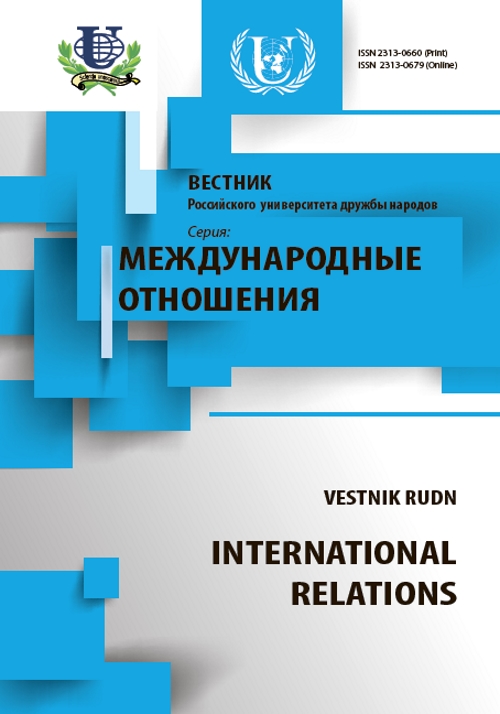International Relations Research Methodology: Realism
- 作者: Shabaga A.V.1
-
隶属关系:
- Peoples’ Friendship University of Russia
- 期: 卷 15, 编号 3 (2015): International Political Science. Conflict Studies. Greater Middle East
- 页面: 24-33
- 栏目: ARTICLES
- URL: https://journals.rudn.ru/international-relations/article/view/10706
- ID: 10706
如何引用文章
全文:
详细
The article examines the origins and conceptual analysis capabilities of international relations in the framework of a realistic paradigm. We research political conditions and preconditions of the creation of realism’s theory and axiological features of realism’s practice in international relations. We also analyze the basic concepts and schools of realism: Realpolitik, political realism, neorealism, neoclassical realism. It is shown that based on the balance of power in the Realpolitik Prussian and Austrian cases, this understanding of politics within the systematics of the XIX century; the adaptation of the bourgeois liberal and national ideas to the foreign-policy specifics Germany middle of the XIX century. It is shown that political realism is targeting an international actor on the desire to subjugate the greatest possible political space. In the case of political weakness (absolute or relative) political realism indicates a way of adapting to circumstances in order to achieve the most desirable of the possible. The article discusses the concept A. Rochau, H. Morgenthau, H. Kissinger, K. Waltz, showing differences and instrumentality realistic theories and concludes that the main provisions of the concept as a whole.
作者简介
Andrey Shabaga
Peoples’ Friendship University of Russia
Email: schabaga@gmail.com
Department of Theory and History of International Relations
参考
补充文件








